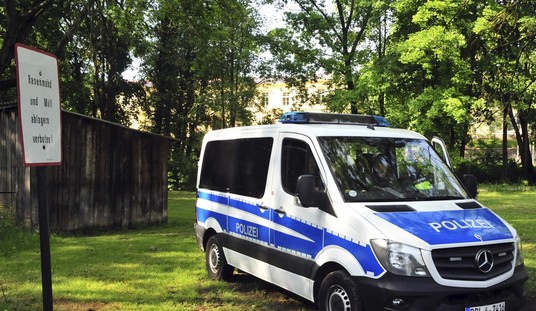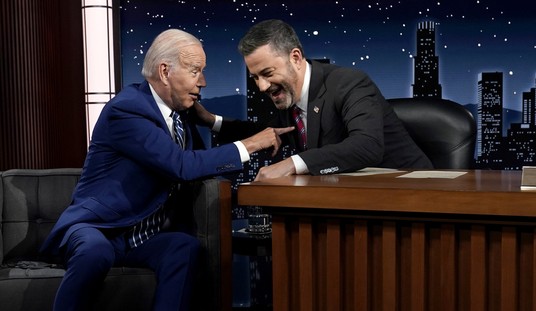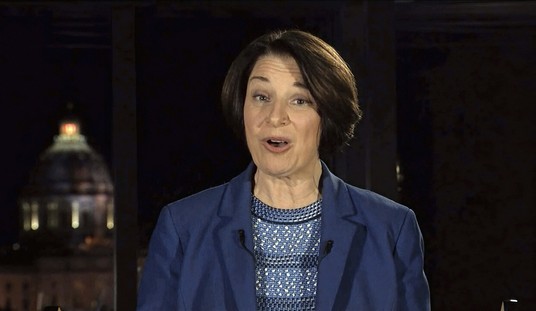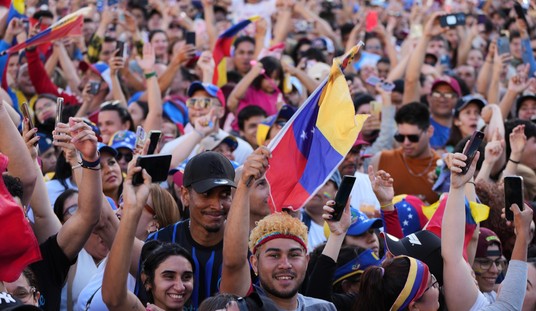This makes perfect sense to me — as a political strategy. Militarily, it sounds like they’re creating another Lebanon, where Hezbollah dominates the south of the country but by and large leaves Beirut alone (aside from the occasional advance to remind the government who’s boss). If you think having U.S. drones in the sky over Taliban-controlled areas will keep Al Qaeda out — which hasn’t happened in the Pakistani tribal areas, although I guess hope springs eternal — then fair enough. Politically, though, it’s perfectly sound. Hawks get a build-up in urban areas, which aren’t under threat, and doves get fewer new troops deployed to Afghanistan than expected, and it’s all very reasonable and compromise-y and Change-ish. And of course it shows voters how firm Obama’s hand is on foreign policy, declining McChrystal’s request for a big troop increase in favor of a more modest, nuanced one.
Sure, it means essentially ceding huge parts of the country to jihadist nutbags. But that’s how “pragmatism” works, baby.
At the moment, the administration is looking at protecting Kabul, Kandahar, Mazar-i-Sharif, Kunduz, Herat, Jalalabad and a few other village clusters, officials said. The first of any new troops sent to Afghanistan would be assigned to Kandahar, the Taliban’s spiritual capital, seen as a center of gravity in pushing back insurgent advances.
But military planners are also pressing for enough troops to safeguard major agricultural areas, like the hotly contested Helmand River valley, as well as regional highways essential to the economy — tasks that would require significantly more reinforcements beyond the 21,000 deployed by Mr. Obama this year…
[The new] strategy would be open to complaints that American and allied forces were in effect giving insurgents free rein across large parts of the nation, allowing the Taliban to establish ministates with training camps that could be used by Al Qaeda…
Military officers said that they would maintain pressure on insurgents in remote regions by using surveillance drones and reports from people in the field to find pockets of Taliban fighters and to guide attacks, in particular by Special Operations forces.
But a range of officials made the case that many insurgents fighting Americans in distant locations are motivated not by jihadist ideology, but by local grievances, and are not much of a threat to the United States or to the government in Kabul.
That’s the whole bet, succinctly stated — that, if left alone to govern themselves, the Afghans fighting alongside the Taliban will behave like most Iraqi Sunni insurgents and lay down their arms. If that bet proves wrong, then the only thing preventing the creation of a de facto Talibanistan in the rest of the country will be … drones. More from Max Boot:
The Taliban right now are still working to secure the countryside and it would be a grave mistake if we allowed them to pursue that strategy hindered only by a few air strikes that inevitably would be ineffective unless we had troops on the ground to generate accurate targeting intelligence. That doesn’t mean that we should send forces into remote outposts where no one lives. McChrystal is, in fact, pulling back such small bases, and rightly so. But his strategy envisions major operations to secure the Helmand River Valley, a rural area but one with plenty of substantial towns and villages. This is the economic heart of southern Afghanistan and the country’s major poppy-growing region. His strategy also envisions taking control of the rural areas that surround major cities such as Kandahar and Kabul. In the case of the capital, that means pacifying provinces to the south such as Logar and Wardak. The approaches to those cities have been in the grip of the Taliban, and breaking their vice grip will require more troops.
Similarly, Baghdad did not start to become secure in 2007 until the U.S. deployed substantial surge troops to the “gates” of the city — the belt of rural territory surrounding the capital including the “triangle of death” to the south. If the Obama strategy does not envision a similar offensive in Afghanistan, it will be making a terrible mistake. But if such an offensive is planned it will take a lot of troops — 10,000 to 20,000 probably won’t cut it, especially if most of those are providing combat “enablers” (medevac, air support, route clearance, intelligence, and the like).
The kindest thing that can be said about The One’s strategy, I think, is that it may quiet the Taliban down for a year or two, just long enough for us to declare victory in training the Afghan army and then skedaddling before the inevitable offensive on the country’s population centers begins. If the jihadists have any strategic sense at all, they’ll lie low for a while after moving back into the countryside to give Obama some political cover (see, we can trust them!) and to consolidate their gains. If they’re willing to fight for seven years to reclaim the country, they should be willing not to fight for two or three to create enough space for The One to pull out. Then they can make their move and, when they do, we can shrug it off as us having done what we could. There’s your “exit strategy,” I guess.
Update: Via e-mail, a great question from a military reader.
One thing I’ve noticed that’s missing from every single city vs. country argument I’ve ever heard, and seems entirely applicable to the recent post on Hot Air: When city and country disagree, who feeds who?
Do the people in the countryside get their daily bread from food grown in the cities? No, it seems to work the opposite way. The country folks grow the food if the government lets them, and then it’s shipped in to feed the city folks.
If the country folks decide they aren’t on the same team as the people in the city, well, sucks if you live in the city. Either get with the program, or get real thin real quick. At least American liberals in coastal cities have big corporations to provide their organic foods from all over the world, what do you think the Afghanis have while they’re under assault by jihadist extremists?







Join the conversation as a VIP Member